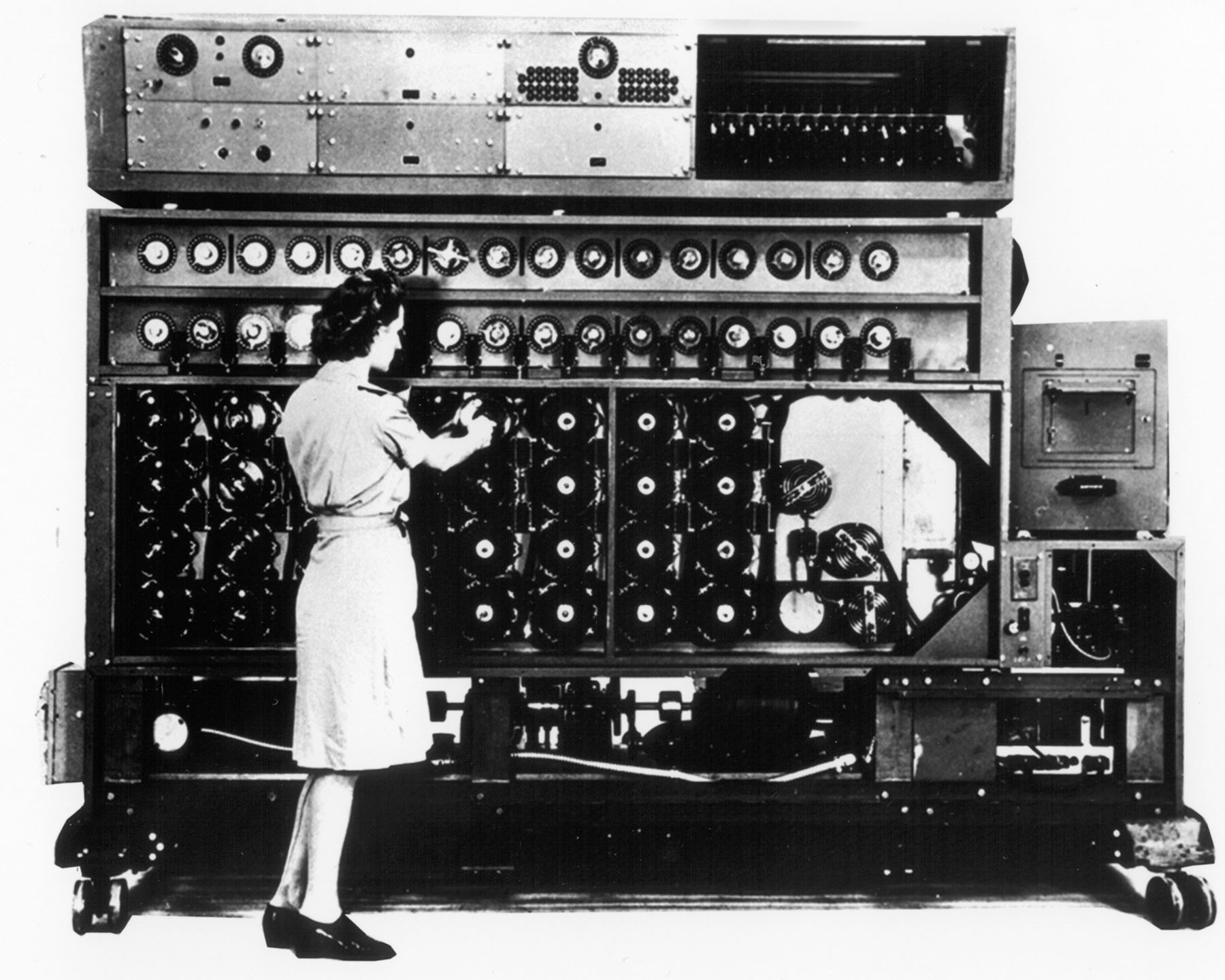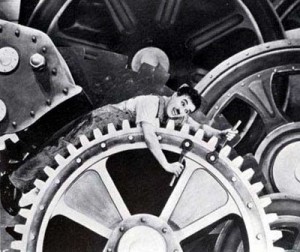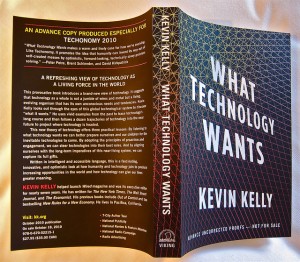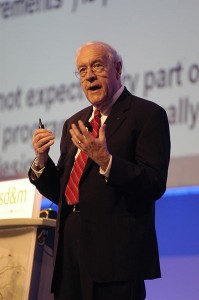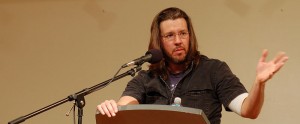Few magazines have made such a mark.
You are currently browsing articles tagged Kevin Kelly.
Tags: Kevin Kelly
Kevin Kelly defines “technology” on his blog:
“I want to suggest a theory for technology, a framework that might provide a logic and context for this parade of new things in our lives. But I have to start with the fact that we have a warped idea of what technology is. A lot of us tend to think that technology is ‘anything that was invented after you were born.’ Or technology is: ‘anything that doesn’t work yet.’ As if only the new is what we are talking about.
But of course technology includes old inventions, like clocks and levers, and ancient materials that work very well, like concrete and bricks. The bulk of technology in our lives was invented long before we were born. Ordinary technology also contains intangible ‘stuff’ that we usually don’t see such as calendars, bookkeeping principles, law, and software. It includes large complex things like social organizations and cities. Technology is all this, the old, the invisible, the large and the new — the accumulated usefulness that our minds invent.”
Tags: Kevin Kelly
On his site, Kevin Kelly’s opines on “Seeking Sustainable Disequilibrium,” which seems to be happening whether we seek it or not, as we ride the wave of the great paradigm shift through the Information Age. An excerpt:
“In the industrial perspective, the economy was a machine that was to be tweaked to optimal efficiency, and once finely tuned, maintained in productive harmony. Companies or industries especially productive of jobs or goods had to be protected and cherished at all costs, as if these firms were rare watches in a glass case.
As networks have permeated our world, the economy has come to resemble an ecology of organisms, interlinked and coevolving, constantly in flux, deeply tangled, ever expanding at its edges. As we know from recent ecological studies, no balance exists in nature; rather, as evolution proceeds, there is perpetual disruption as new species displace old, as natural biomes shift in their makeup, and as organisms and environments transform each other.
Even the archetypal glories of hardwood forests or coastal wetlands, with their apparent wondrous harmony of species, are temporary federations on the move. Harmony in nature is fleeting. Over relatively short periods of biological time, the mix of species churns, the location of ecosystems drift, and the roster of animals and plants changes as they come and go.
So it is with network perspective: companies come and go quickly, careers are patchworks of vocations, industries are indefinite groupings of fluctuating firms.”
Tags: Kevin Kelly
NPR’s Robert Krulwich had an interesting conversation with Kevin Kelly of Wired. Kelly claimed to the disbelieving host that no tool or technology in the history of the Earth has ever gone extinct on a global scale. Krulwich can’t believe the assertion but has yet to disprove it. An excerpt:
“He said, ‘I can’t find any [invention, tool, technology] that has disappeared completely from Earth.’
Nothing? I asked. Brass helmets? Detachable shirt collars? Chariot wheels?
Nothing, he said.
Can’t be, I told him. Tools do hang around, but some must go extinct.
If only because of the hubris — the absolute nature of the claim — I told him it would take me a half hour to find a tool, an invention that is no longer being made anywhere by anybody.
Go ahead, he said. Try.
If you listen to our Morning Edition debate, I tried carbon paper (still being made), steam powered car engine parts (still being made), Paleolithic hammers (still being made), 6 pages of agricultural tools from an 1895 Montgomery Ward & Co. Catalogue (every one of them still being made), and to my utter astonishment, I couldn’t find a provable example of an technology that has disappeared completely.”
Tags: Kevin Kelly, Robert Krulwich
Jerry A. Coyne essentially hammers Kevin Kelly’s new book, What Techonology Wants, in today’s Sunday Times Book Review. Coyne is particularly peeved by what he perceives as Kelly tying technological progress to evolutionary determinism and the author’s personal religious beliefs. I’ve always like Kelly a lot, so I’ll make up my own mind when I read the book. But the numbers in this paragraph of the review caught my eye. An excerpt:
“In What Technology Wants, Kelly provides an engaging journey through the history of ‘the technium,’ a term he uses to describe the ‘global, massively interconnected system of technology vibrating around us,’ extending ‘beyond shiny hardware to include culture, art, social institutions and intellectual creations of all types.’ We learn, for instance, that our hunter-gatherer ancestors, despite their technological limitations, may have worked as little as three to four hours a day. Since then, the technium has grown exponentially: while colonial American households boasted fewer than 100 objects, Kelly’s own home contains, by his reckoning, more than 10,000. As Kelly is a gadget-phile by trade (and an affluent American to boot), this index probably inflates the current predominance of technology and its products, but a thoroughly mundane statistic makes the same point: a typical supermarket now offers more than 48,000 different items.”
Tags: Jerry A. Coyne, Kevin Kelly
Pioneering computer scientist Fred Brooks is the subject of an interesting Wired Q&A conducted by Kevin Kelly. Brooks became famous in the computer world–and beyond–for his book, The Mythical Man-Month, which gave lie to the idea that increased manpower translated into faster progress. The theory became known as Brooks’ Law.
Brooks has written a new book called The Design of Design: Essays From a Computer Scientist, which occasioned the interview. A few excerpts below:
•••••
Wired: How does a guy who grew up in the 1940s among North Carolina tobacco farmers get into computers?
Fred Brooks: I collected maps as a kid. I had tried all kinds of ways to index my map collection, which got me interested in the notion of automatic data retrieval. In 1944, when I was 13, I read about the Harvard Mark 1 computer in a magazine, and I knew then that computers was what I wanted to do.
•••••
Wired: You’re a Mac user. What have you learned from the design of Apple products?
Fred Brooks: Edwin Land, inventor of the Polaroid camera, once said that his method of design was to start with a vision of what you want and then, one by one, remove the technical obstacles until you have it. I think that’s what Steve Jobs does. He starts with a vision rather than a list of features.
•••••
Wired: You say that the Job Control Language you developed for the IBM 360 OS was “the worst computer programming language ever devised by anybody, anywhere.” Have you always been so frank with yourself?
Fred Brooks: You can learn more from failure than success. In failure you’re forced to find out what part did not work. But in success you can believe everything you did was great, when in fact some parts may not have worked at all. Failure forces you to face reality.
Tags: Fred Brooks, Kevin Kelly
All-around brilliant guy Kevin Kelly is trying to decide which (English-language) magazine articles are the greatest ever. He’s come up with a list of 100 suggestions for the best and is asking readers to suggest their own and vote for their faves. Titles below are the leaders thus far. View the whole list.
• David Foster Wallace, “Federer As Religious Experience.” The New York Times, Play Magazine, August 20, 2006.
• David Foster Wallace, “Consider the Lobster.” Gourmet, Aug 2004.
• Neal Stephenson, “Mother Earth, Mother Board: Wiring the Planet.” Wired, December 1996. On laying trans-oceanic fiber optic cable.
• Gay Talese, “Frank Sinatra Has a Cold.” Esquire, April 1966.
•Ron Rosenbaum, “Secrets of the Little Blue Box.” Esquire, October 1971. The first and best account of telephone hackers, more amazing than you might believe.
• Jon Krakauer, “Death of an Innocent: How Christopher McCandless Lost His Way in the Wilds.” Outside, January 1993. Article that became Into the Wild.
Tags: David Foster Wallace, Gay Talese, Jon Krakauer, Kevin Kelly, Neal Stephenson, Ron Rosenbaum

